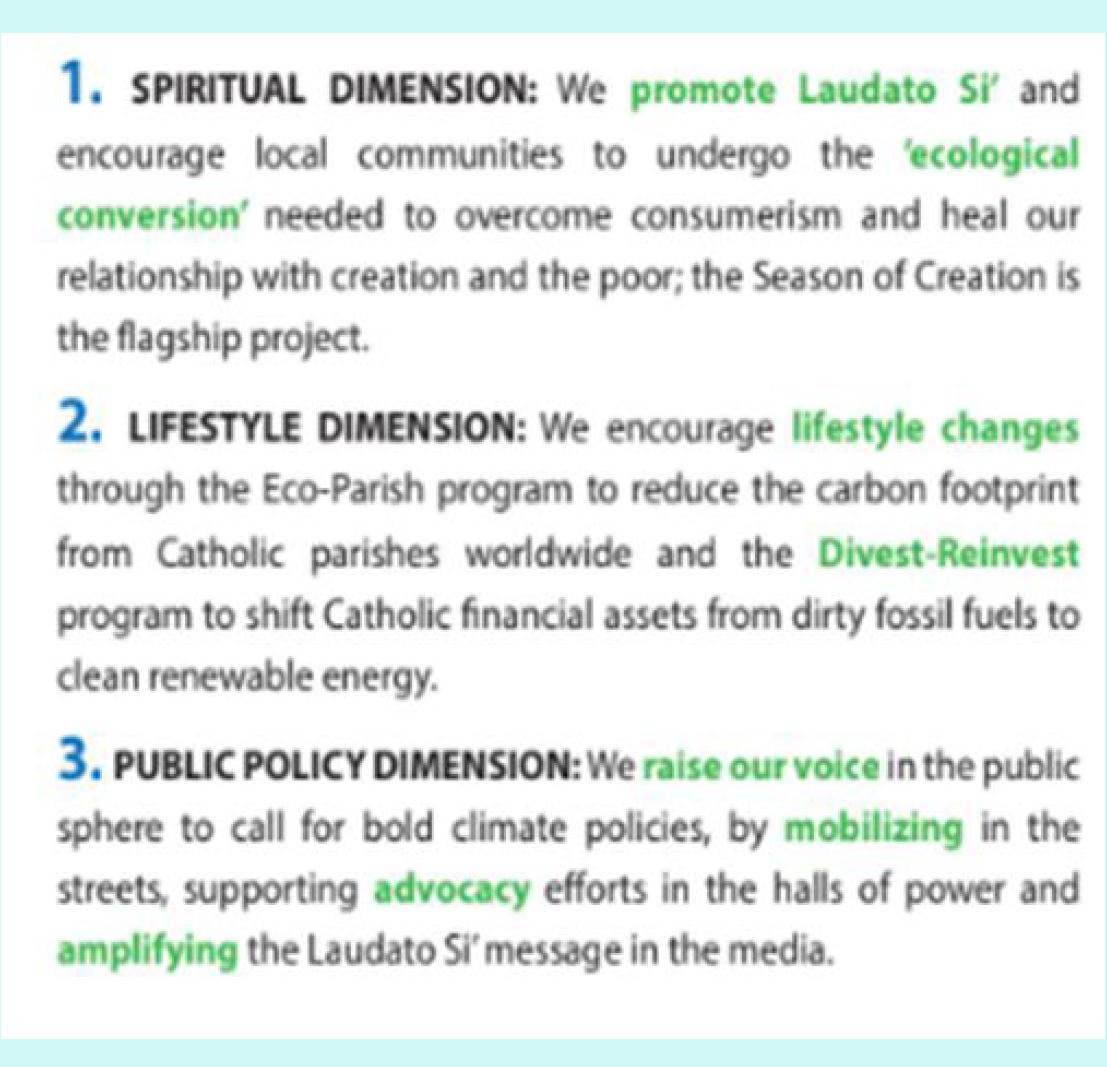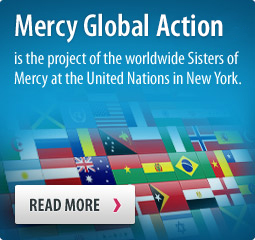
Global Catholic Climate Movement (GCCM) – A Call to Action
Reports: April 08, 2018
The Global Catholic Climate Movement (GCCM) held their Board meeting in Maynooth in February. Betty Lacey and Denise Boyle fmdm representing MIA-Mercy Global Action met with Tomás Insua, CEO and Amy Echeverria, the Chair of the GCCM Board, to discuss ongoing collaboration between the two organisations and to explore ways to expand our shared network. Like many members of the Mercy Family, Global Action has been an active member of GCCM since the organisation was set up in 2015.
In a relatively short time GCCM has grown into a global network with over 400 member organisations and thousands of individual members, many of whom are young people. The GCCM mandate is simple, respond to Pope Francis’ call to action as clearly stated in his environment encyclical ‘Laudato Si' – On Care for Our Common Home’. As Tomás shared, GCCM was set up in January 2015 knowing that the Pope’s encyclical was ‘coming down the track’. When Laudato Si' was launched in June of that year, GCCM was ready to embrace its message wholeheartedly and to share it globally, through its excellent communication strategy.
Via an informative power point presentation to the about 40 people present at the meeting, Tomás shared the mission of GCCM and how it is implementing it: “The Global Catholic Climate Movement is a first-of-its-kind international coalition of Catholics from many nations, continents, and walks of life. We are laity, religious, and clergy, theologians, scientists, and activists from Argentina, the Philippines, the United Kingdom, Kenya, Australia, the United States... united by our Catholic faith and our work in various roles and organizations on climate change issues”.

The ‘Spiritual’ encompasses the promotion of Laudato Si' and is a call to an ecological conversion. ‘Lifestyle’ is linked to changes that reduce my / our carbon footprint, plus it is an invitation to divest from fossil fuels and to reinvest in renewable energy. And the public sphere is a call to advocacy through mobilising on the streets, speaking truth to power wherever possible and amplifying the message of Laudato Si in the media.
Tomás emphasised the critical link between the global and the local. He was very keen to hear “stories“ of implementation and change effected at grassroots level from those present and to establish links between the various organisations. He ended his talk on a positive note quoting paragraph 13 in Laudato Si: “The urgent challenge to protect our common home includes a concern to bring the whole human family together to seek a sustainable and integral development, for we know that things can change.”
Lorna Gold from Trocaire, who is internationally known for her work on climate change and is a member of the GCCM Board, spoke about the Laudato Si' Working Group in Ireland. They are liaising with the Irish Bishops’ Conference, to implement the call to action in Laudato Si'.
With participants from many different countries present, Lorna spoke of the importance of holding political candidates to account when they are looking for our vote to be elected. Unless we all speak about it, prospective politicians will not get the message that climate change is an urgent, moral issue. Candidates will listen if there is a group of one hundred people gathered in a room discussing their concerns around climate change, especially if they think there is an opportunity of winning votes!
In the area of education, there were many contributions from the floor. The general impression was that the schools are far more advanced in sharing the ‘good news’ of Laudato Si' than other sectors and we should be encouraged with the advances they have made. This was particularly apparent in the primary or grade school sector.
The upcoming papal visit in August 2018 for the World Meeting of Families in Dublin was mentioned. It is anticipated that the Pope’s visit will highlight the urgent issue of climate change. One concrete way is through speaking of the environmental footprint related to his visit. If the message of Laudato Si' is to be translated into action, we could all get involved in promoting a ‘zero rubbish campaign’ i.e. to leave venues clean in the aftermath of the outdoor Papal Mass and family celebration, where thousands will gather to celebrate with Pope Francis. It was agreed to make contact with the organisers and engage with others to keep these venues rubbish free. If water fountains are made available, this will minimise the use of plastic water bottles. One participant shared that the US Super Bowl is now a zero waste event – encouraging all of us to emulate this for the papal visit.
Messages to: Denise Boyle fmdm - Team Leader MIA-Mercy Global Action




